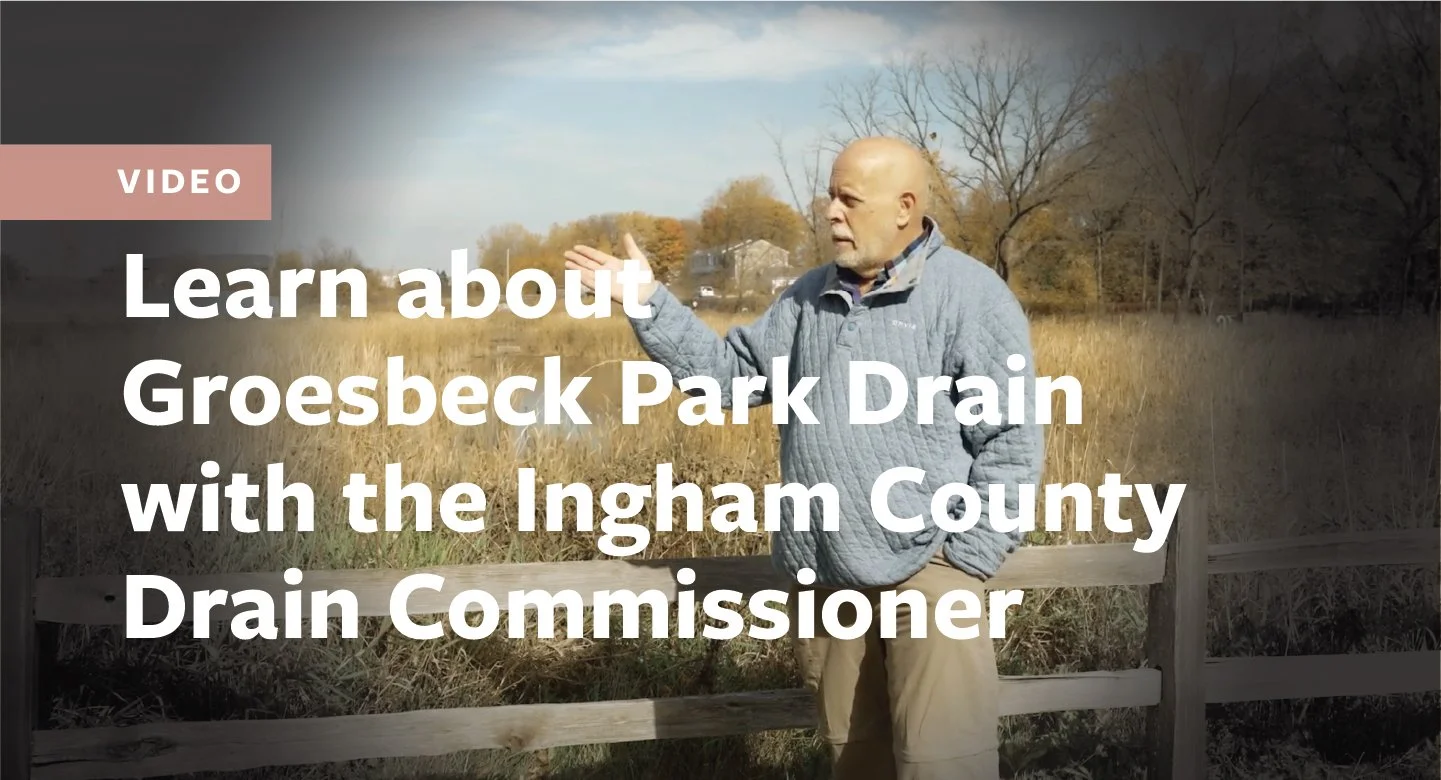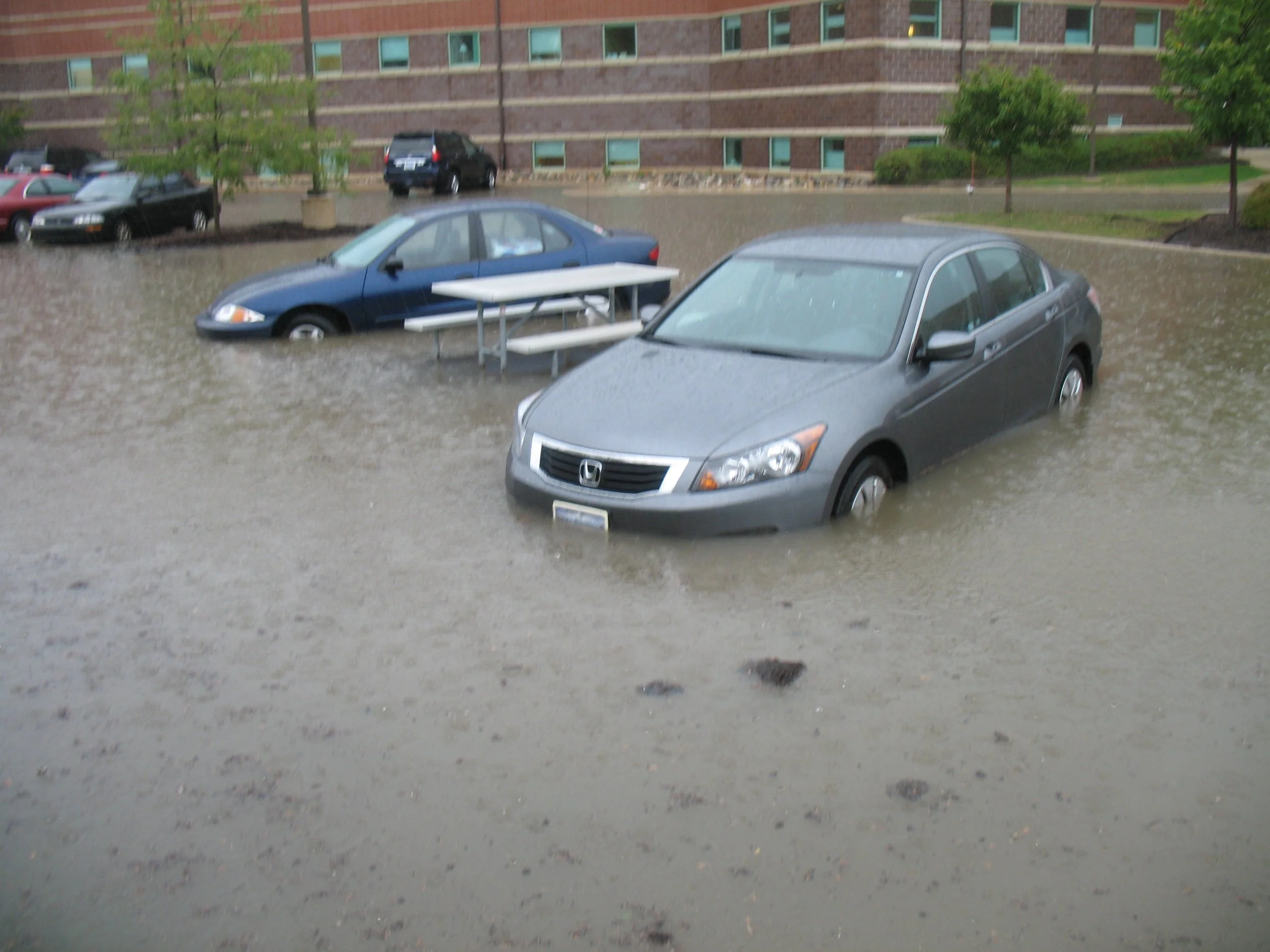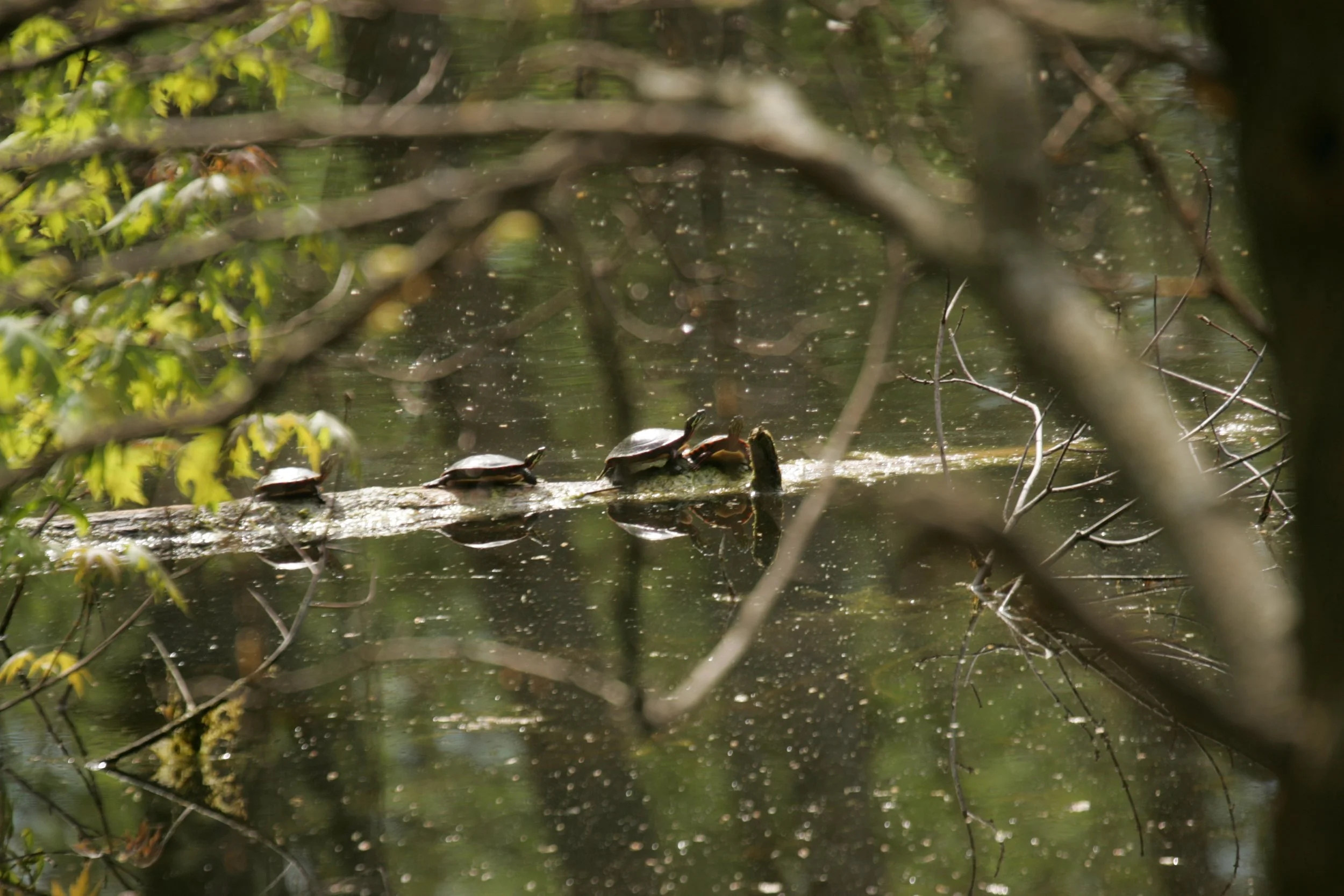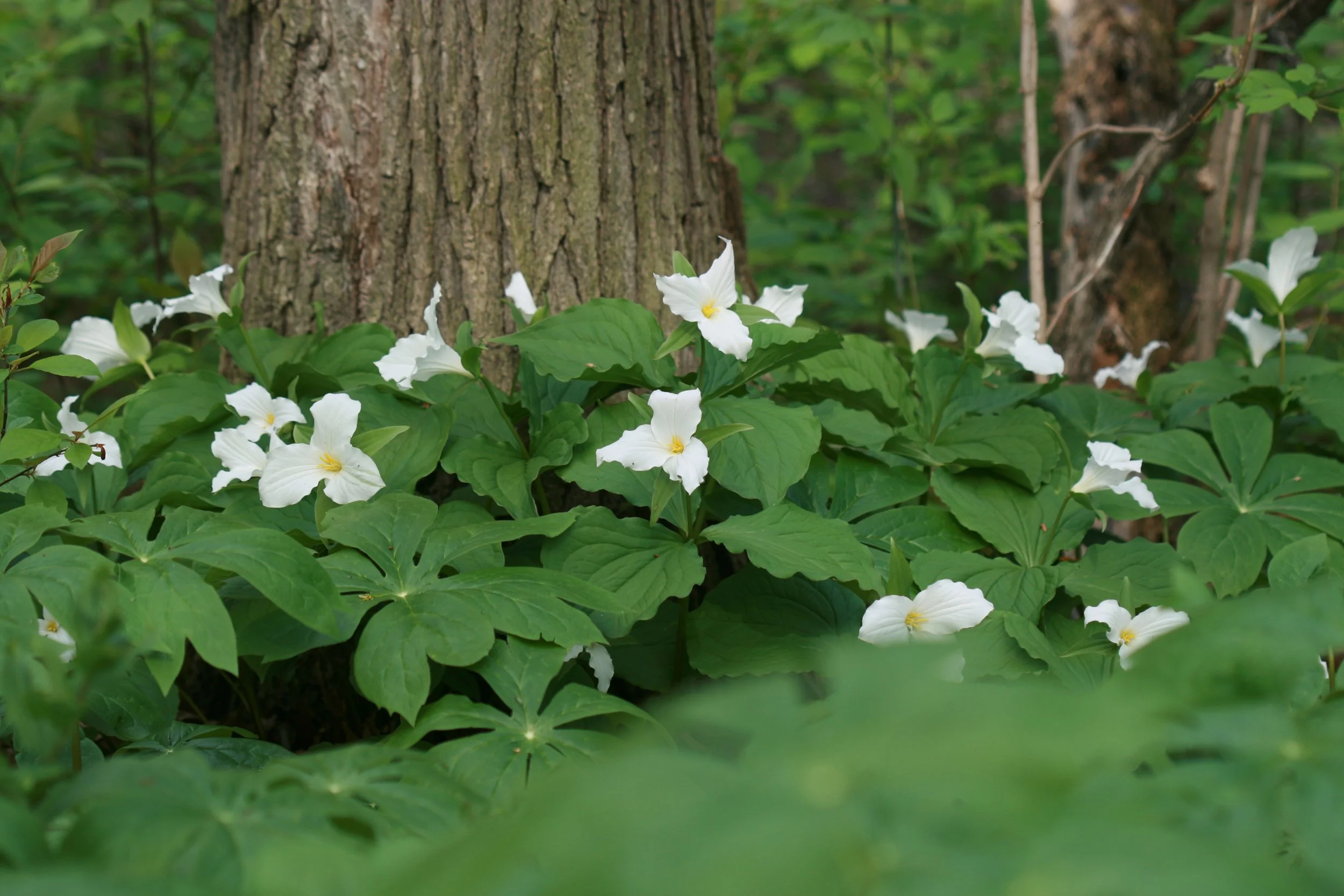Groesbeck Park Drain
Through innovation, persistence and collaboration, the Ingham County Drain Commissioner’s team transformed a 300-acre watershed riddled with groundwater contamination and no stormwater outlet, into a regional stormwater detention facility that improves water quality and protects the region’s drinking water supply.
Challenges
Groesbeck Park Drain contained 11 different sites of varying types and degrees of contamination, including solid waste landfills, industrial disposal sites and mining operations. Most of the construction work was adjacent to a fly ash disposal pit, a U.S. Environmental Protection Agency (EPA) superfund site, and a Class II active landfill.
The drain contains a remnant of the Mason Esker, a highly permeable area of sand and gravel that is a large groundwater recharge area.
Decades of intense urban development caused flooding of properties, local streets and the City of Lansing’s Groesbeck Golf Course. Because there was no stormwater outlet, this flooding would push unfiltered stormwater and potentially polluted upstream runoff into the groundwater recharge area, eventually working into the upper portions of the aquifer that provides most of the City of Lansing’s drinking water.
A flooded Lake Lansing Road traffic circle and the 7th tee of Groesbeck Golf Course underwater
An employee parking lot of a medical building north of Baritt Street
Innovative solutions
Collection systems were constructed on David St., Barritt St., Wood St., Lake Lansing Rd. and Sam’s Way that ultimately discharge through a 3-phase first flush treatment system on the east end of an old landfill site. A specialized treatment system was also constructed on the Builder’s Redi-Mix property.
Once through the first-flush treatment ponds, the water is carried onto the Groesbeck Golf Course, largely restructured to accommodate nearly 7.1 acres of new treatment and detention systems.
A pump recirculation system moves stormwater through the ponds and various limestone spillways on the golf course.
The 3-phase first-flush treatment system between Barritt Street at its north end (to the left) and David Street at its south end (to the right)
Environmental and water quality benefits
Vegetation was selected to maximize the uptake of pollutants, provide for a diverse wildlife habitat and create an aesthetically pleasing ecosystem.
Instead of the stormwater collecting in low areas and infiltrating into the ground and worsening the pollution plume, the treatment ponds were lined and detention was built into the system so no infiltration occurs and stormwater only leaves the site during large rain events.

Walk the trail and learn about Groesbeck Park Drain
Use of new materials
Consulting with Chelsea, Michigan-based Herpetological Resource and Management, over 75 habitat mitigation structures were installed throughout the project. These structures, like basking rock piles for snakes or sand mounds for turtles, helped to mitigate loss of valuable habitat for insects, reptiles, amphibians and aquatic species.
Painted turtles enjoying the sunshine
Native trilliums growing in a now safe environment
Cost effectiveness
For several years prior to bidding, the Ingham County Drain Commissioner worked with local developers, the road department, City of Lansing, Lansing Board of Water and Light, and Lansing Township to integrate construction of the drain into their projects resulting in a 37%, or $4.7 million, cost savings.
Value engineering was done on all items to offset cost increases during a four year gap between bidding and the start of construction (due to litigation).
There were 25,000 cubic yards of excavation spoils from the construction of open water basins and wetlands on holes 6 and 7 of the golf course. When finished, no dirt was hauled off-site and these improvements were made at no cost to the city.
Groesbeck Golf Course, after construction
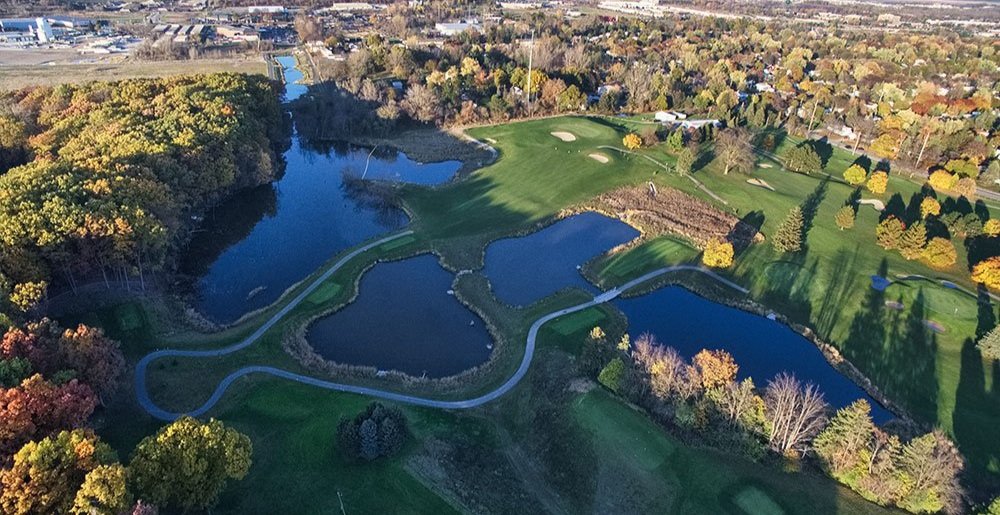
Awards Received
Michigan Association of County Drain Commissioners
Innovation and Excellence Award
Groesbeck Park Drain, Ingham County, 2018
The team
Eng.
Engineer
Mead Bros. Excavating, Inc.
Contractor
Contributing companies
Herpetological Resource and Management, LLC
Miller-Canfield P.L.C.
Northern Concrete Pipe
PFM Financial Advisors, LLC
SME
Water & Woods Ecology
Woodworth Law Firm

